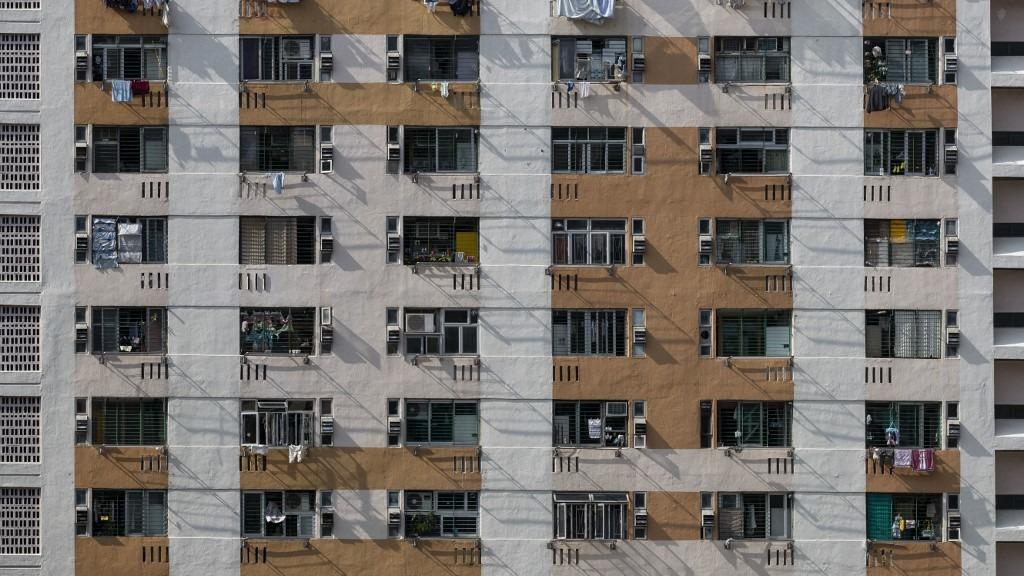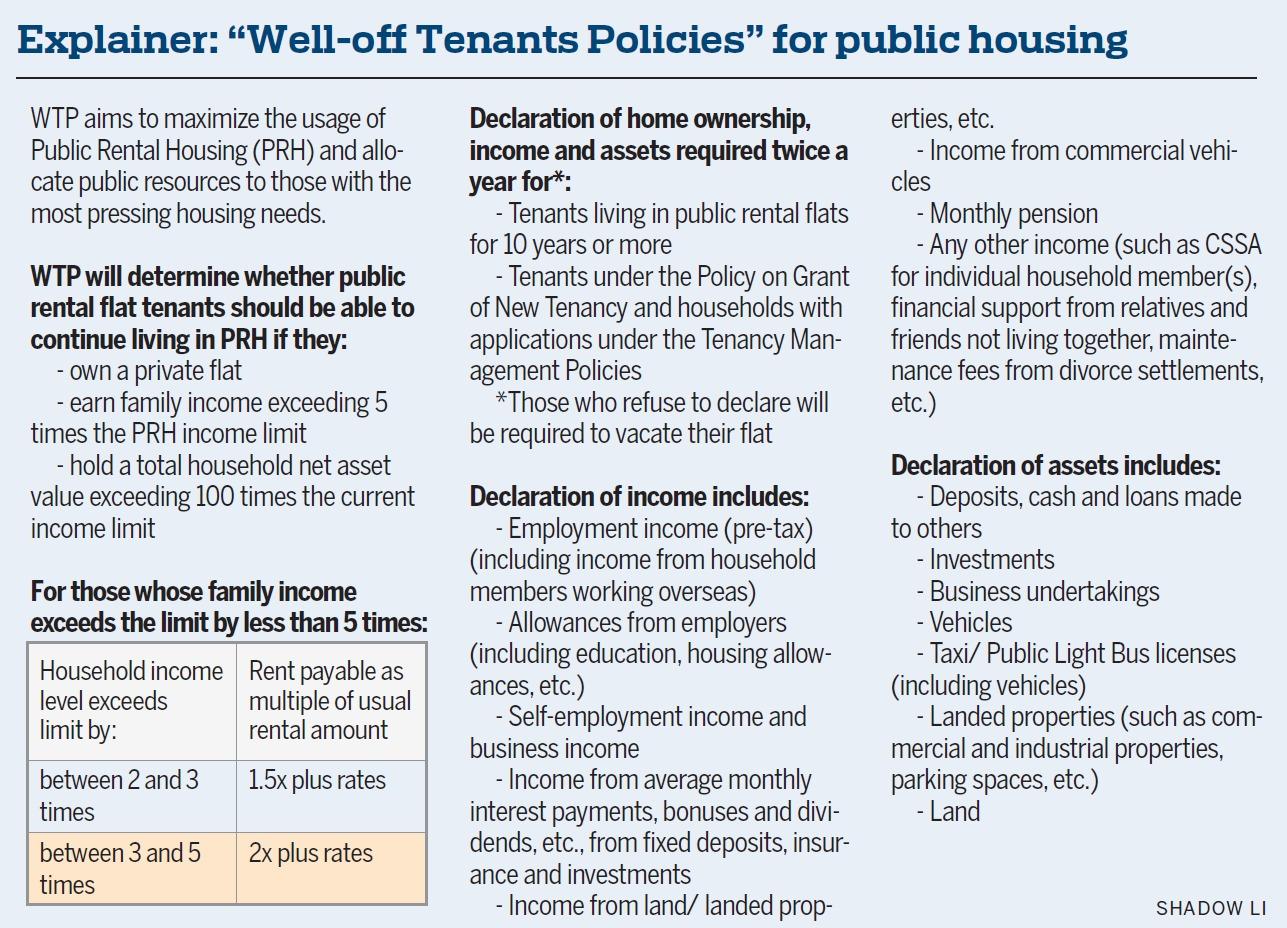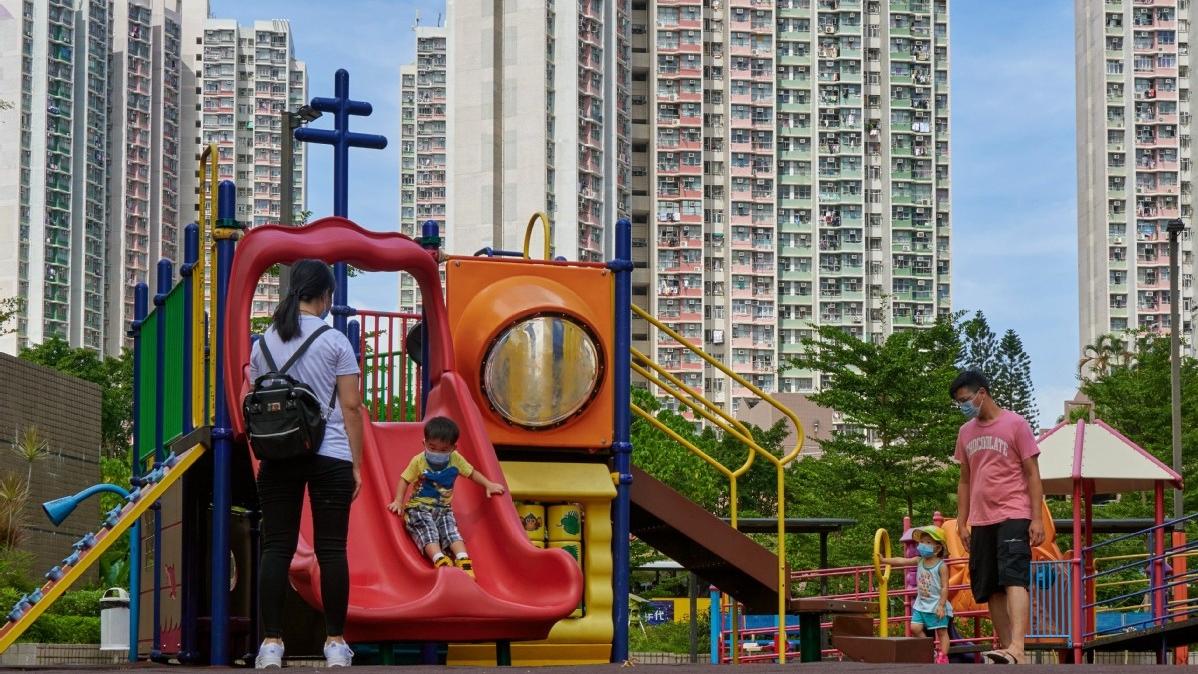 The file photo dated Aug 23, 2020 shows public housing in Hong Kong. (PHOTO / AFP)
The file photo dated Aug 23, 2020 shows public housing in Hong Kong. (PHOTO / AFP)
Experts and scholars said Hong Kong should devise multipronged policies to boost the turnover of public housing in the city and address the housing needs of those with different incomes.
Official data show that the turnover rate of public rental housing (PRH) in Hong Kong is around 1 percent, and those who live in public housing may not be those with the greatest need, while a significant number of grassroots residents live in substandard housing.
The city is expected to boost the turnover rate by identifying public housing tenants who are better off than others and encouraging them to surrender their public housing flats so they can be allocated to families in need.
For example, a July meeting of the Hong Kong Housing Authority received a proposal to tighten the “Well-off Tenants Policies” (WTP), including raising the age threshold for exemption from asset assessment from 60 to 65 years old.
READ MORE: Adjust housing policy to boost young people's homeownership
At present, households with members all aged 60 or above account for about 25 percent of total public housing households. About 30 percent of the population in Hong Kong is aged 60 or above, and it is expected that the number will increase by a further 16 percent in 10 years.
According to the Housing Authority, as of late June, the average waiting time for general applicants who have been housed in PRH in the past 12 months was 5.3 years, while there were about 133,100 general applications for PRH, and about 96,900 non-elderly one-person applications under the Quota and Points System (QPS).
READ MORE: Fanling golf course site deemed suitable for HK public housing
Executive Director of the Federation of Public Housing Estates Anthony Chiu Kwok-wai said that in view of the results from the previous tightening of the WTP, the effectiveness of raising the asset assessment exemption age is also uncertain, as well-off tenants have many ways to ensure they satisfy the asset assessment requirements, such as by deleting young family members’ registered residence.

Under the current WTP, which was updated in 2017, public housing households that hold ownership of private domestic property in Hong Kong, or whose family income exceeds five times the PRH income limits, or whose total net household assets exceed 100 times the income limits, should vacate their public flats.
The government has issued relocation notices to about 580 well-off tenants, but only 134 had returned their units as of March 2018.
He added that if some well-off tenants fail to meet the new requirements, their next residence must also be considered.
Terence Chong Tai-leung, an associate professor of economics at the Chinese University of Hong Kong, believes the most effective way to expedite the turnover of PRH is to set a fixed term for the usage of public housing, such as allowing residents to rent PRH in urban areas for 10 or 20 years; after that they would need to relocate to other areas such as the New Territories
Some elderly residents may have saved throughout their working lives, and it would be unreasonable to require them to exhaust all their savings to purchase private property after moving out.
ALSO READ: Official: HK to strive to increase public housing supply
“Considering their income situation, if they choose to rent commercial units, this may also impose a significant financial burden on them, and landlords may also be reluctant to rent to older tenants,” Chiu added.
Chiu suggested the government should provide more incentives for well-off tenants to move out of public housing, such as allowing them to have priority in purchasing subsidized housing.
Chiu said the government has introduced a greater variety of housing options to address societal needs, such as the Green Form Subsidised Home Ownership Scheme and the recently launched Private Subsidised Sale Flat — Pilot Scheme. However, the most crucial aspect is to increase the supply and prioritize the needs of lower-income residents.
ALSO READ: Understanding the different roles of private and public housing
Terence Chong Tai-leung, an associate professor of economics at the Chinese University of Hong Kong, believes the most effective way to expedite the turnover of PRH is to set a fixed term for the usage of public housing, such as allowing residents to rent PRH in urban areas for 10 or 20 years; after that they would need to relocate to other areas such as the New Territories.
The economist also suggested enhancing PRH efficiency by allowing housing exchanges accompanied by compensatory payments.
For example, Chong said, a young couple residing in Tin Shui Wai and a retired couple living in Ho Man Tin public housing could exchange their homes by agreeing on a compensatory amount the young couple could pay to the retired couple. This arrangement would enable the elderly couple to retire in Tin Shui Wai, while the young couple would have the opportunity to reside in urban public housing, making it more convenient for them to commute to work or school.
 This undated photo shows a boy playing on a slide at a playground while other family members watch, at a public housing estate in Tin Shui Wai, New Territories, Hong Kong. (PHOTO PROVIDED TO CHINA DAILY)
This undated photo shows a boy playing on a slide at a playground while other family members watch, at a public housing estate in Tin Shui Wai, New Territories, Hong Kong. (PHOTO PROVIDED TO CHINA DAILY)
Multi-pronged policies
Joey Cheung Cho-yu, a community organizer at the Society for Community Organization, who cares about public housing matters, said that according to the current policy, well-off tenants are divided into a number of categories, depending on monthly household income and the net asset value.
READ MORE: New measures key to ensuring fair distribution of public housing
Most well-off tenants only need to pay 1.5 times or double the rental, and the number of “excessively well-off tenants” is small. Even if the government raises the asset assessment exemption age, Cheung estimated that there would not be too many affluent households that need to be relocated due to their excessively high household income.
Cheung said that housing policies should be focused on taking a multifaceted approach. Besides increasing the overall land and housing supply to fulfill the government’s promise of shortening the PRH waiting time to three years, it
is also essential to address and balance the housing needs of different groups.
Wong Kwai-hoi added he believes that merely raising the asset assessment exemption age would fail to serve as a deterrence and would not be effective in accelerating the turnover of public housing
Currently, under the QPS for PRH, the average waiting time target of around three years is not applicable to non-elderly one-person applicants. The waiting time for this group reaches up to 10 years or more. Cheung hopes the government will pay more attention to their plight and reform the QPS.
READ MORE: Report: 'Notable improvement' in public housing lying ahead
She added that there is still a disparity in rental amounts for transitional housing and PRH, with the former being more expensive. The government should promptly narrow this price gap to maintain the attractiveness of transitional housing, she advised.
Additionally, continued support should be provided to grassroots individuals awaiting public housing, especially those living in substandard flats, she said.
Wong Kwai-hoi, 68, currently lives in a shack with a tin roof in Sham Shui Po, with monthly rent and utility bills totaling over HK$3,000 ($382). His total income is about HK$6,800, all from the government’s comprehensive allowance and housing subsidy.
He told China Daily that many of his neighbors are in a similar situation — living alone, with a low income — and some are already over 70 years old. “Maybe they will never have the chance to move into public housing.”
ALSO READ: Easing the housing burden
“It’s not necessarily the poor (who) live in public housing. Some PRH residents even own private cars!” Wong pointed out that for well-off tenants, even if they pay double, their rent is still lower than what they would need to pay to live in most subdivided units.
He added he believes that merely raising the asset assessment exemption age would fail to serve as a deterrence and would not be effective in accelerating the turnover of public housing.
Wong believes that the government should implement stricter asset assessments. Also, he hopes the government will provide more assistance to elderly individuals living in substandard housing, including facilitating them to move into transitional housing.


